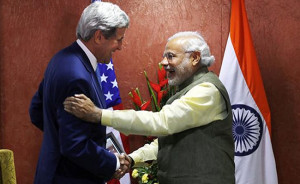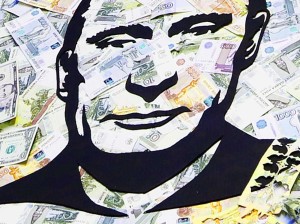Dr Adil Rasheed writes: It might come as a surprise to many readers, but there have been several instances of jihadist disengagement from violence for several decades and many extremist Islamist groups have given up their campaign of violence for good.
All posts by Dr. Adil Rasheed
Will ISIS’ Caliphate Die with its ‘Big Daddy’?
Dr Adil Rasheed, Senior Research Fellow at the USI, writes: As there is no Hamlet without the Prince of Denmark, then perversely can there be an ISIS Caliphate without its Caliph Ibrahim? That is the question. As ISIS is losing ground in war and its interim head Abu Alaa Al Afri is said to favor close relations with Al-Qaeda, will ISIS think of foregoing its claim to a Caliphate. In order to come closer to its parent organization, ISIS may have to reconsider asking Al-Qaeda leaders to swear the mandatory allegiance to its new leader-cum-Caliph.
Kerry tells Pakistan to fight terrorist groups that threaten India, Afghanistan and the US
Pakistan must fight militant groups that threaten Afghan, Indian and US interests, US secretary of state John Kerry said on Tuesday as he voiced sympathy for the victims of the […]
Who was Behind Paris Attacks: Al-Qaeda, ISIS, or Worse ‘Lone Wolves’
Western intelligence officials are obsessed with tracking rival groups like ISIS and al Qaeda. They need to concentrate on tracking down the individual terrorists instead.
Saudi Arabia’s $750 Billion Gamble Drives Oil Below $54 per barrel
With oil prices falling on January 6, 2015 below $54 a barrel, the decision by Saudi Arabia not to cut oil production despite its record $38.6 billion deficit has bewildered oil markets. The Kingdom is said to have accumulated $750 billion in foreign currency reserves which it is reportedly willing to put on the line in its global campaign of not being the only swing state responsible for stabilizing oil prices.
Another Meltdown? Ruble Collapse Spreads Across to US and Emerging Markets
Dr Adil Rasheed writes: Excessive derivatives’ speculation on commodity trade, particularly in oil and food products, in addition to problems of excess production of oil and falling growth rates in troubled Europe and emerging markets point to imminence of new crisis






